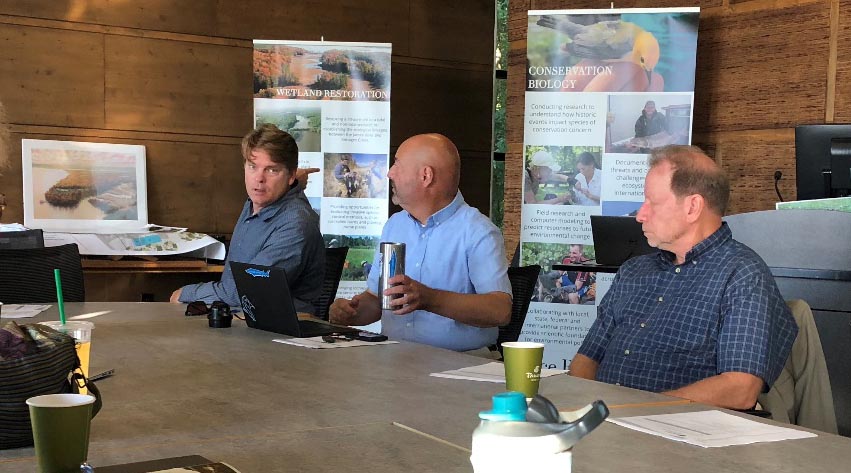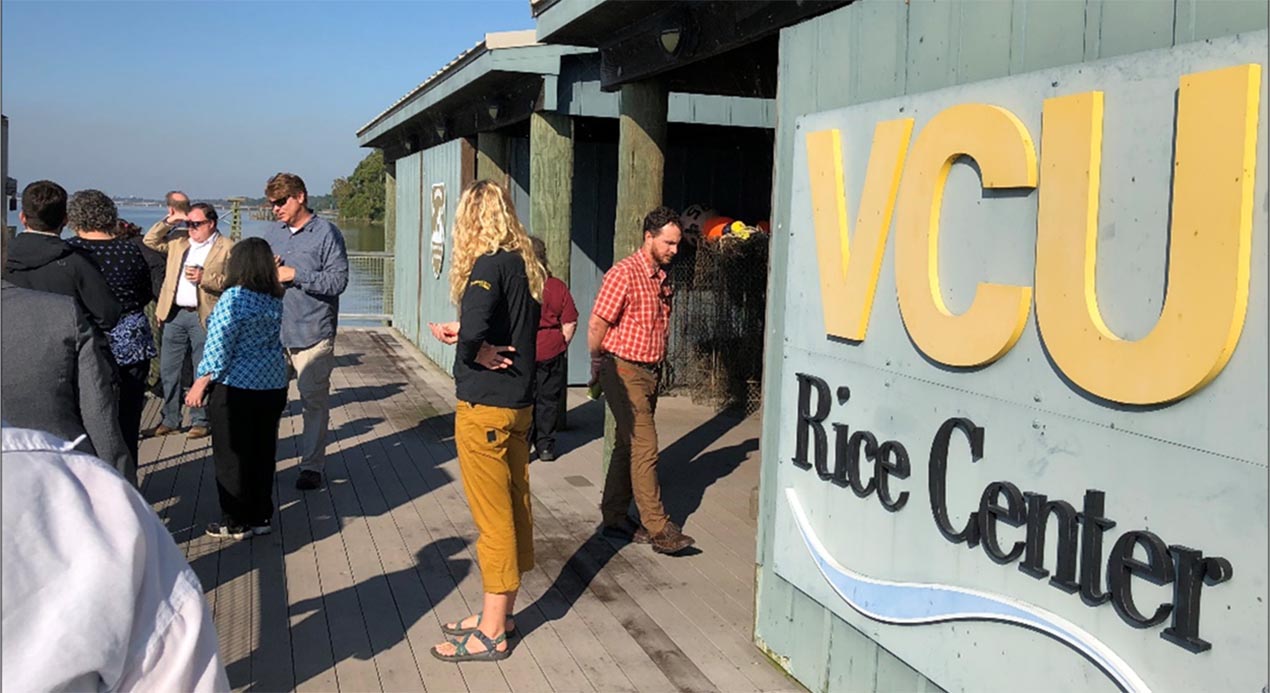SOE, Life Sciences explore collaboration opportunities

director and research director; and Rob Tombes, vice provost, Life Sciences and Research.
Members of the VCU School of Education and VCU Life Sciences met at the Rice Rivers Center recently to explore collaboration opportunities between the two schools. Participants found many areas of common ground and agreed to meet again to narrow an area of future cooperation.
The meeting included a tour by Dr. Ed Crawford, deputy director of the Rice Rivers Center, followed by a review of outreach and professional learning efforts provided by both the School of Education and Life Sciences. Previous efforts by the Rice Rivers Center and the Center for Environmental Studies have included work with teachers and students at individual schools in both rural and urban areas.
Key insights from those in Life Sciences were contributed by Dr. Rob Tombes, vice provost; Dr. Greg Garman, director of the Rice Rivers Center; Dr. Rodney Dyer, director of the Center for Environmental Studies; and Dr. James Vonesh, assistant director of the Center for Environmental Studies. Todd Janeski, director of the Virginia Oyster Shell Recycling Program, and others from Life Sciences rounded out the discussion.
Jose Alcaine, research coordinator, provided an overview of the School of Education’s grant and research efforts and shared an interactive map showcasing our collaboration by zip code. Drs. Elizabeth Edmondson and Katherine Dabney shared their recent work in pre-service teacher math/science professional development.
Kathy Rudasill, associate dean for research and faculty development, facilitated three breakout groups to brainstorm opportunities for partnership. Ideas that were generated include:
- Prioritizing nearby Charles City County Schools as an outreach partner
- Connecting students in urban and rural areas by having them compare/contrast similar research themes
- Focusing on immersive professional learning opportunities for teachers, using bivalves as an organizing theme, and including authentic hands-on experiences for students linked to college and career opportunities
Al Byers, visiting scholar for STEM education, concluded the meeting by reviewing potential funding mechanisms and grants with video examples of prior efforts funded by the National Science Foundation.
